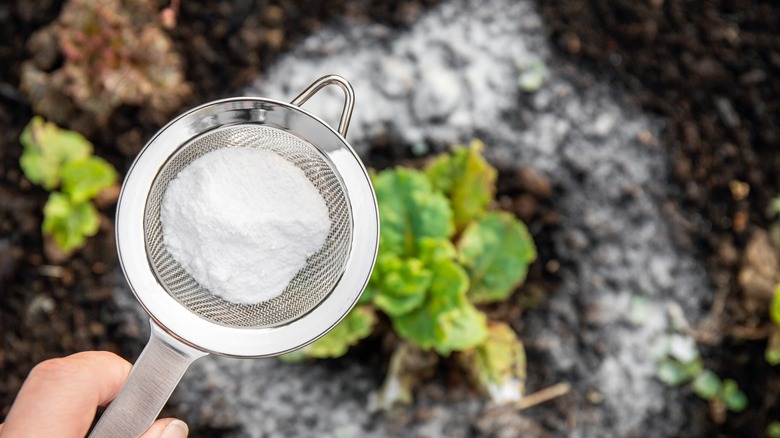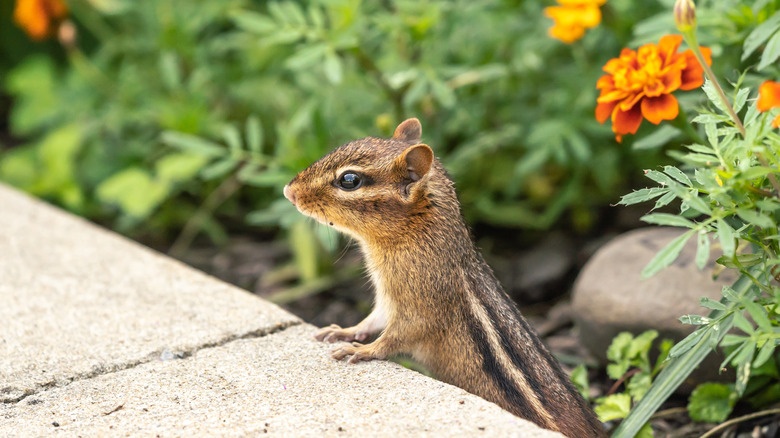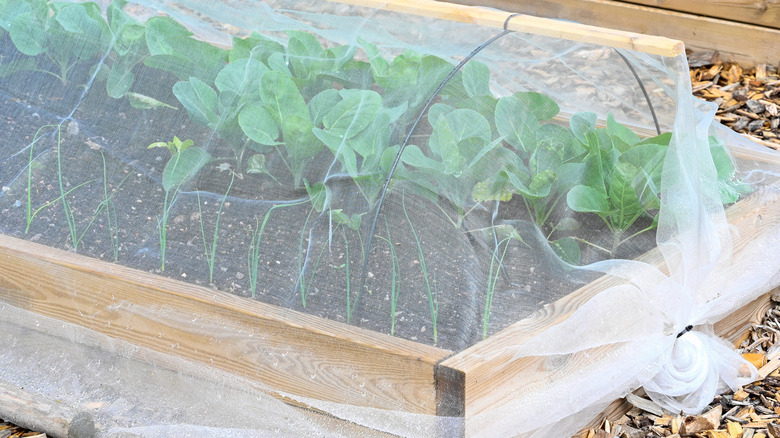Why Do People Use Baking Soda To Deter Chipmunks & Does It Actually Work?
Those cute furry chipmunk friends living in your backyard are often getting into your plants and digging holes in your garden beds or flower pots. In order to deter this pest, many gardeners have turned to sprinkling baking soda around their garden to hopefully prevent these pests from damaging their plants. But does this actually work? Dr. Charles van Rees, a conservation scientist, naturalist, and blogger at Gulo in Nature, spoke exclusively with House Digest to share his thoughts on this trick. He is skeptical that baking soda would even work, and offered suggestions for better alternatives such as structural barriers.
According to Van Rees, baking soda does not deter chipmunks. Chipmunks, like squirrels, are known for their sense of smell, which attracts them to food sources or keeps them away from predators. Baking soda is very unlikely to prevent those often unwanted rodents from visiting your plants. In fact, he says, "Like people, chipmunks might be driven off by strong unpleasant odors, but baking soda does not have a strong smell. In fact, people usually use it to absorb strong smells." So instead of using that baking soda to keep chipmunks away, use it for these baking soda cleaning hacks that are worth trying.
Is this hack dangerous?
In Van Rees' exclusive with House Digest, he explained, on the plus side, putting baking soda around your plants isn't considered very dangerous for the chipmunks. However, if the chipmunk eats too much of the baking soda they will likely develop stomach and digestive issues that can lead to vomiting. It is best to think twice before you use baking soda to get rid of similar pests, like garden moles.
The bigger risk baking soda causes is towards your plants and fungi, Van Rees says. Baking soda is a salt, and contains one of the ions of table salt (sodium); if it dissolves in your flower pot with regular watering, it will increase the salinity of the soil. This can mess with the plants' ability to regulate the concentration of key minerals inside its body and can damage the plant. It also influences the pH level, which can make both plants and their supportive fungi unhappy, according to the biologist. To keep your plants healthy, avoid adding high amounts of substances such as baking soda that will impact the plant's mineral balance.
Here's how to actually deter chipmunks
Rather than using this ineffective and potentially harmful hack, Van Rees told House Digest in an exclusive interview that structural barriers are a better chipmunk deterrent. "Like anybody else, chipmunks are lazy," he said. "If you can figure out where your chipmunks live (things like rock walls, woodpiles, holes in the ground), you might consider placing obstacles between where they're coming from and your pots, or moving the pots further away from where the chipmunks hang out."
Nets are a great barrier for chipmunks, or you can try this aluminum foil hack people use to keep chipmunks out of flower pots. Van Rees says that you can also use capsaicin. "Mammals are sensitive to capsaicin, the chemical responsible for the spicy taste of chili peppers. Many chili pepper sprays are readily available at stores and might do the trick. Be sure to wash anything that you sprayed carefully before you eat it, however," he said.


